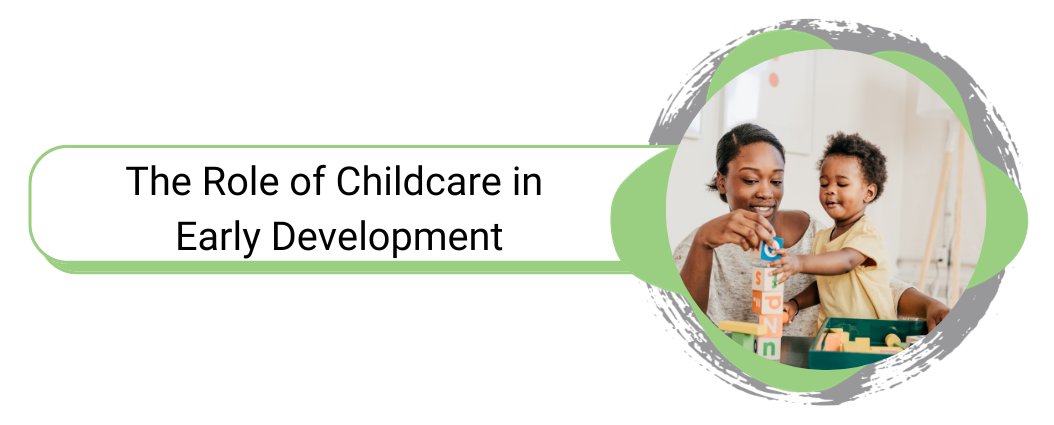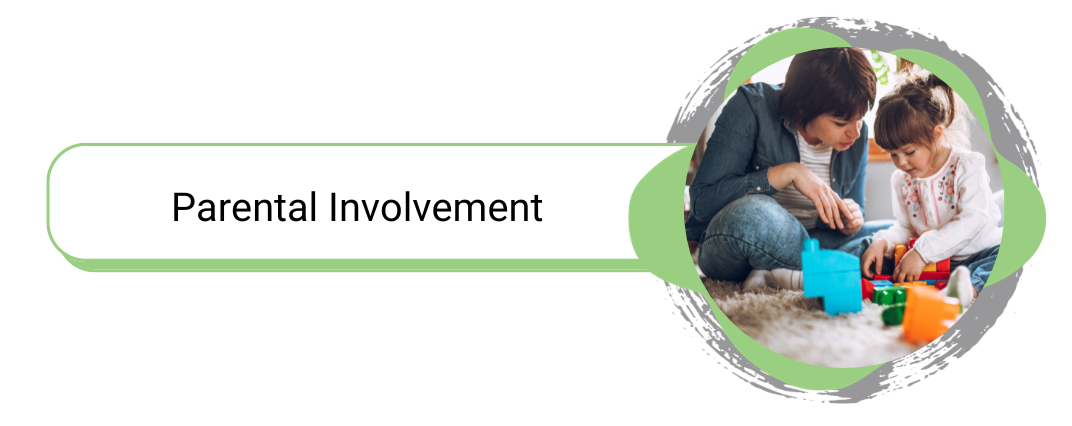Building Strong Foundations: Your Child's Early Years in Childcare
Setting the Stage for Lifelong Learning and Development

The early years of a child's life are a time of rapid growth and development. They build the foundation for future learning, relationships, and overall well-being during this period. For many families, childcare plays a crucial role in shaping these early experiences. In this blog, we'll explore the importance of your child's early years in childcare and how to ensure they are laying solid foundations for their future.

Early childhood, typically defined as the period from birth to age 8, is a crucial phase in human development. During this time, children's brains are highly adaptable and responsive to their environment. Here's why it's so crucial:
1. Brain Development: The early years are rapid brain growth. Neural connections are formed and strengthened through experiences and interactions.
2. Language Acquisition: Children acquire language skills most effectively during their early years. Exposure to rich language environments is essential for language development.
3. Social and Emotional Development: Early relationships and experiences shape a child's emotional intelligence, empathy, and social skills.
4. Cognitive Skills: Early learning experiences set the stage for cognitive skills such as problem-solving, critical thinking, and mathematical understanding.
5. Physical Development: Children develop gross motor skills through running and climbing, improving strength and coordination. Fine motor skills are honed through tasks like drawing and manipulating small objects, enhancing agility and precision for future activities like writing and buttoning clothes.

Childcare providers are crucial in supporting a child's development during their formative years. Here's how:
1. Safe and Nurturing Environment: Childcare centers and providers offer a safe and secure space where children can explore, learn, and play.
2. Socialization Opportunities: Interacting with peers and caregivers in a childcare setting helps children develop essential social skills, including cooperation, sharing, and conflict resolution.
3. Language Exposure: Childcare environments often expose children to a rich vocabulary and language experiences, promoting early language development.
4. Structured Learning: High-quality childcare programs incorporate age-appropriate educational activities and routines that foster cognitive development.
5. Emotional Support: Caring childcare providers offer emotional support, helping children navigate their feelings and build emotional resilience.
6. Routine and Consistency: Consistent routines provide stability and predictability, which is essential for young children.

Selecting the right childcare provider or center is a critical decision for parents. Here are some qualities to look for and help you make the best choice:
1. Research Thoroughly: Explore various childcare programs options in your area. Read reviews, visit centers, and talk to other parents.
2. Licensing and Accreditation: Ensure the childcare facility is licensed and meets accreditation standards, indicating a commitment to quality.
3. Safety Measures: Check for safety measures, such as childproofing, emergency plans, and health and sanitation practices.
4. Qualified Staff: Inquire about the qualifications and training of the caregivers or teachers working with your child.
5. Curriculum and Activities: Ask about the educational approach and activities provided to support your child's development.
6. Parent-Provider Communication: Establish clear lines of communication with your childcare provider using parent communication tools to stay informed about your child's progress and daily experiences.

While childcare providers play a significant role, parents remain the primary influencers in a child's life. Here's how you can actively contribute to your child's early years in childcare:
1. Open Communication: Maintain open and regular communication with your childcare provider. Share important information about your child's needs, routines, and preferences.
2. Participate in Activities: Attend events, meetings, and activities organized by the childcare center to stay involved in your child's learning journey.
3. Create a Supportive Home Environment: Extend the learning and social experiences your child receives in childcare to your home by engaging in activities and conversations related to their experiences.
The early years of childcare are pivotal in shaping a child's development. By selecting a high-quality childcare provider, staying actively involved, and providing a supportive home environment, parents can ensure their child's early years are filled with enriching experiences that build solid foundations for lifelong learning and success. Remember, every child is unique, and the journey of early childhood development is a precious one that requires care, attention, and love.
518